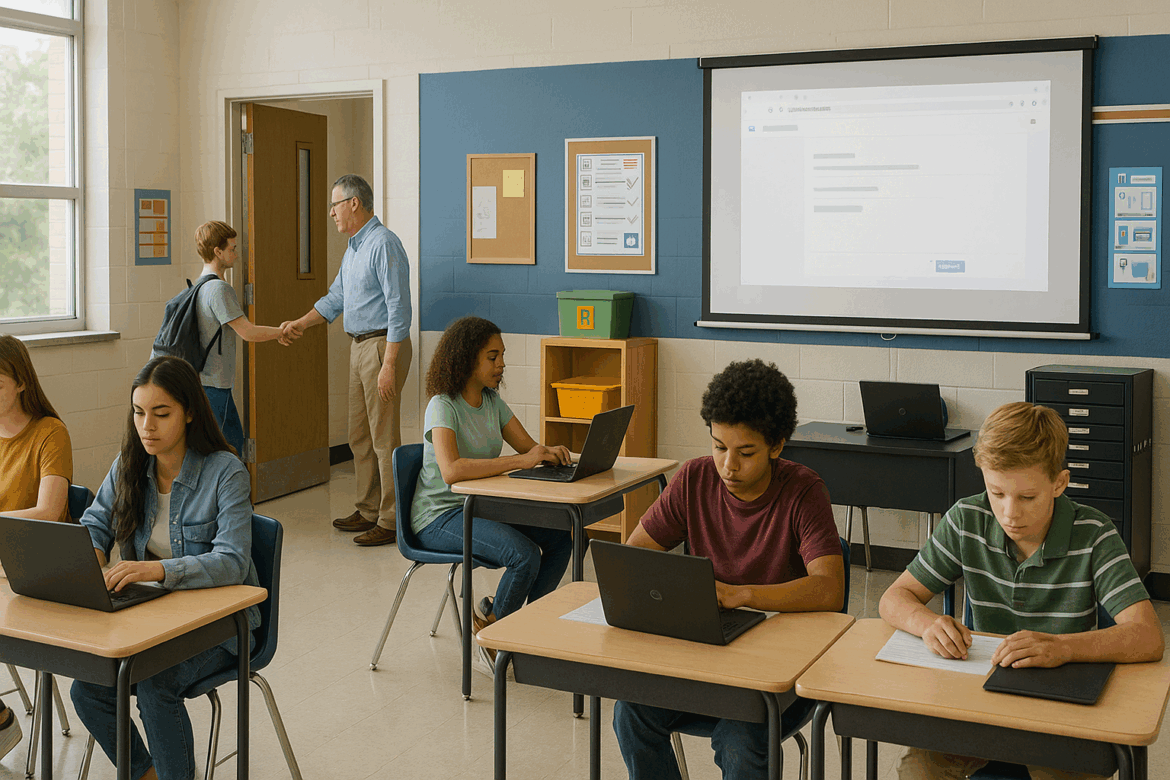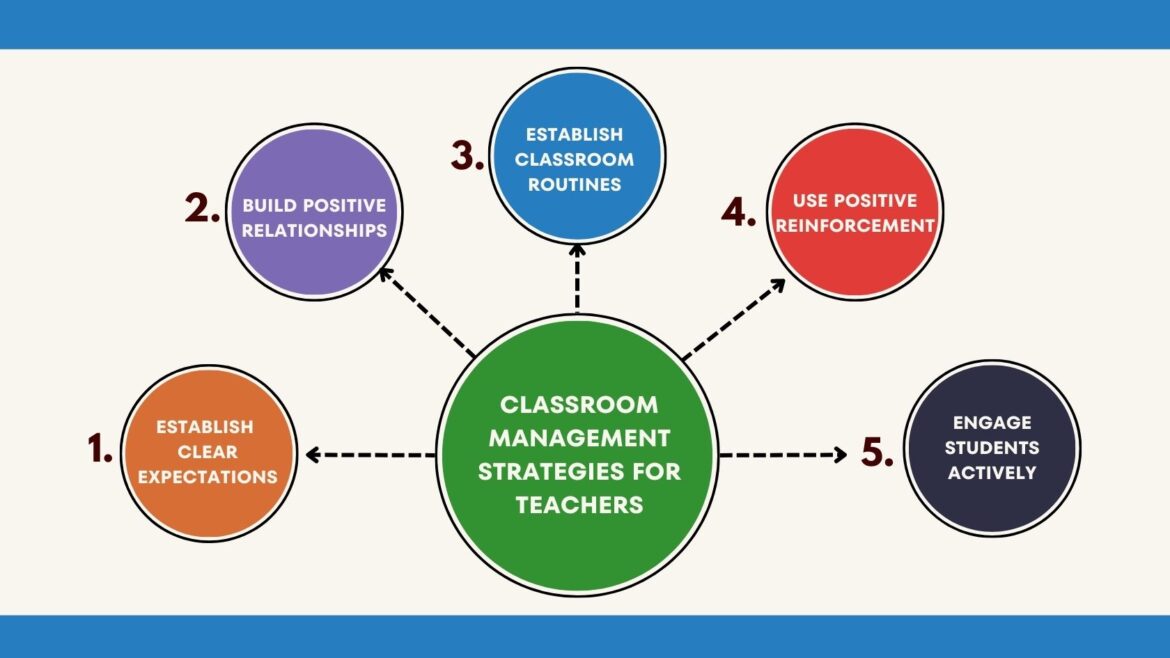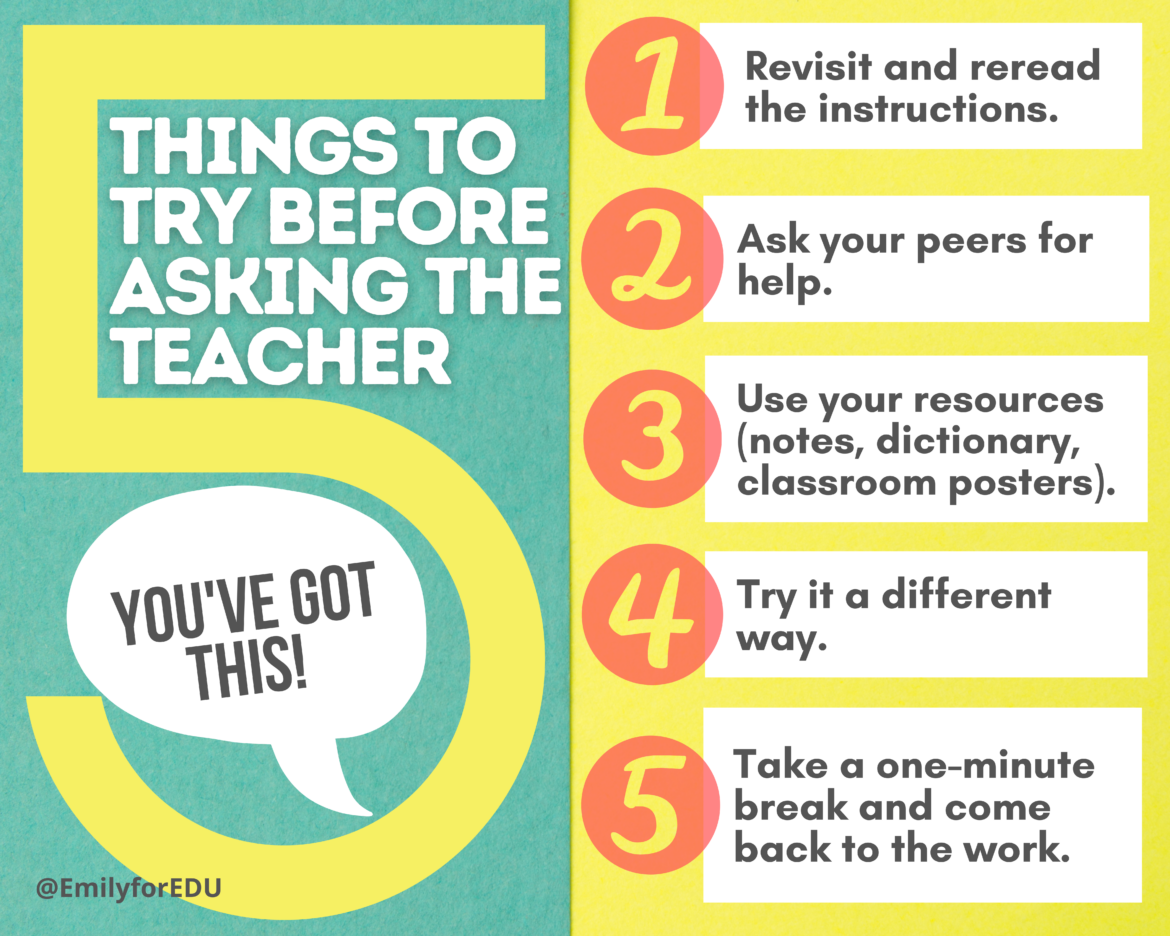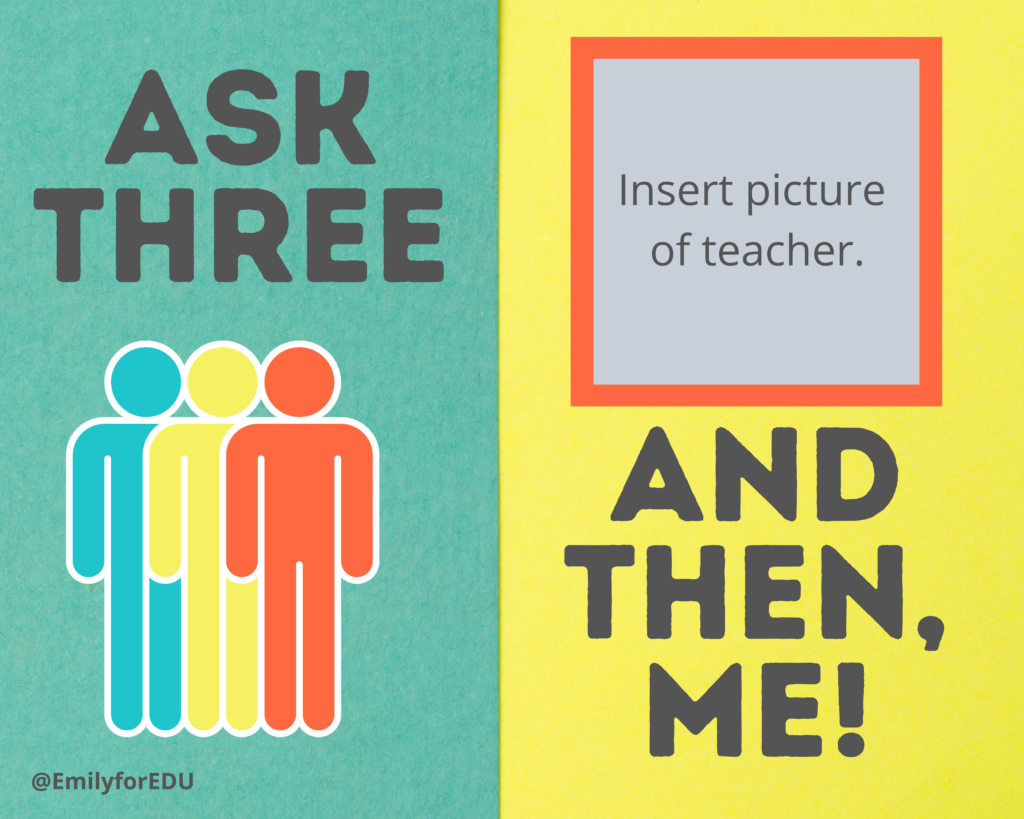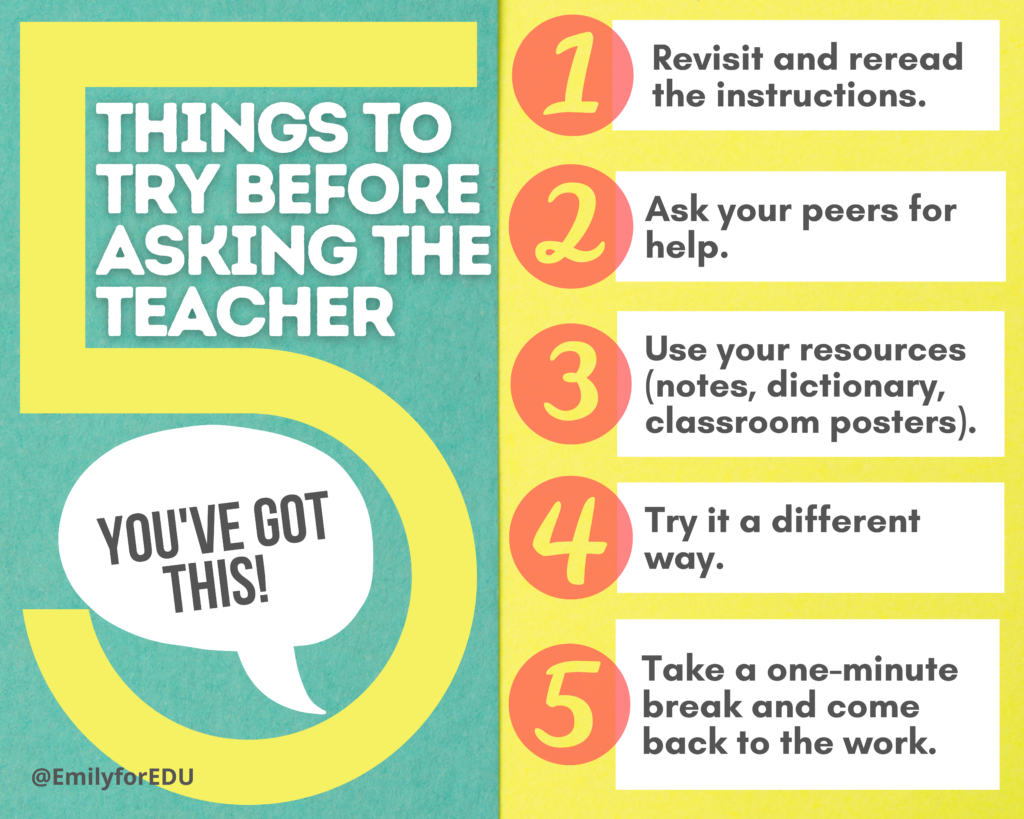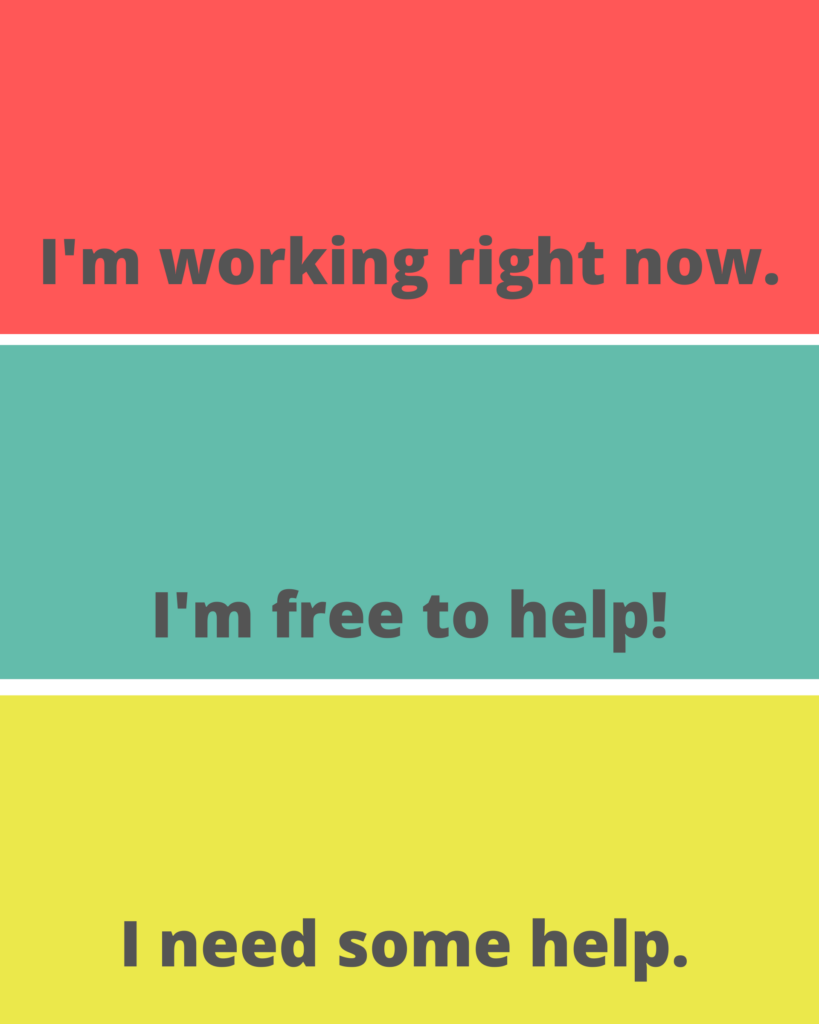Early in my teaching career, I used the terms “procedures” and “routines” interchangeably. But when I moved to teaching middle school, I quickly realized they weren’t the same—and understanding the difference transformed how my classroom worked. Reviewing and practicing both regularly helped class run smoother, gave students a clearer path to independence, and fostered a tighter sense of community. This simple shift became the cornerstone of good teaching in my middle school classroom.
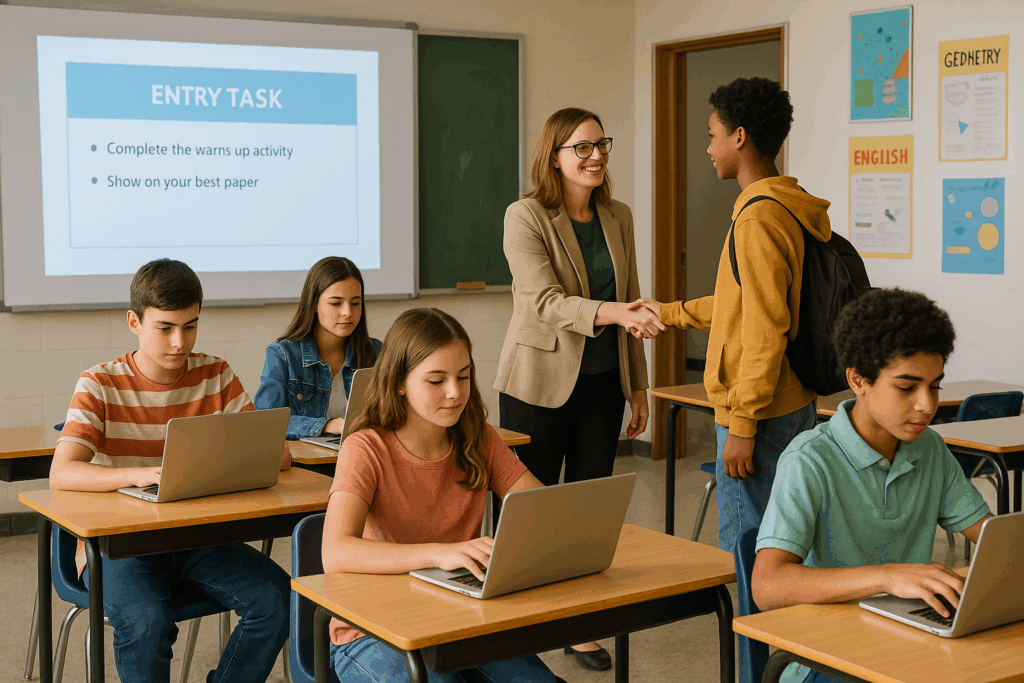
Middle school students thrive when they know what to expect—even if they pretend otherwise. The structure of routines and the clarity of procedures help students focus their energy on learning instead of constantly trying to decode what comes next. And when we weave in technology, it becomes even more important to get this right.
Understand the Difference: Routine vs. Procedure
In a middle school classroom, the terms procedures and routines are related but distinct. Here’s a breakdown that can help you explain or apply them effectively:
Procedures = How things are done
- Definition: Procedures are the specific, step-by-step methods for completing recurring tasks or activities in the classroom.
- Purpose: They provide structure and consistency so students know what to do and how to do it.
- Examples:
- How to turn in assignments
- How to ask to go to the restroom
- How to enter the classroom and get started on bellwork
- How to log in to technology or access digital platforms
- Taught explicitly: Teachers need to teach, model, practice, and reinforce these steps until they become second nature.
Routines = Patterns of behavior built from procedures
- Definition: Routines are the regular, automatic habits that students develop over time from repeated procedures.
- Purpose: They streamline classroom functioning and save time, allowing the focus to shift from management to learning.
- Examples:
- Students walk in, grab their bell ringer sheet, begin working silently—without being told
- End-of-class cleanup that happens smoothly and consistently
- Getting into groups and starting collaborative work without direction
- Result of practice: Routines form when procedures are used consistently and internalized by students.
Key Differences
| Feature | Procedures | Routines |
|---|---|---|
| Focus | The steps of an action | The habitual behavior that emerges |
| Teaching required | Explicitly taught and practiced | Emerges from consistent application of procedures |
| Timing | Introduced as needed | Develop over time |
| Flexibility | Can be adjusted or updated | Harder to change once established |
| Dependency | Depends on teacher reinforcement | Becomes student-led once established |
Example Scenario: Collecting Homework
- Procedure: “Place your homework in the blue bin as you enter the classroom.”
- Routine: Students walk in and automatically and drop their homework in the bin without being reminded.
Why This Matters in Middle School
- Middle schoolers need structure but also crave independence.
- Teaching clear procedures helps them feel confident and secure.
- Once routines are in place, you reduce off-task behavior and transitions become smoother—making more time for instruction and engagement.
Start with Tech-Integrated Entry Routines
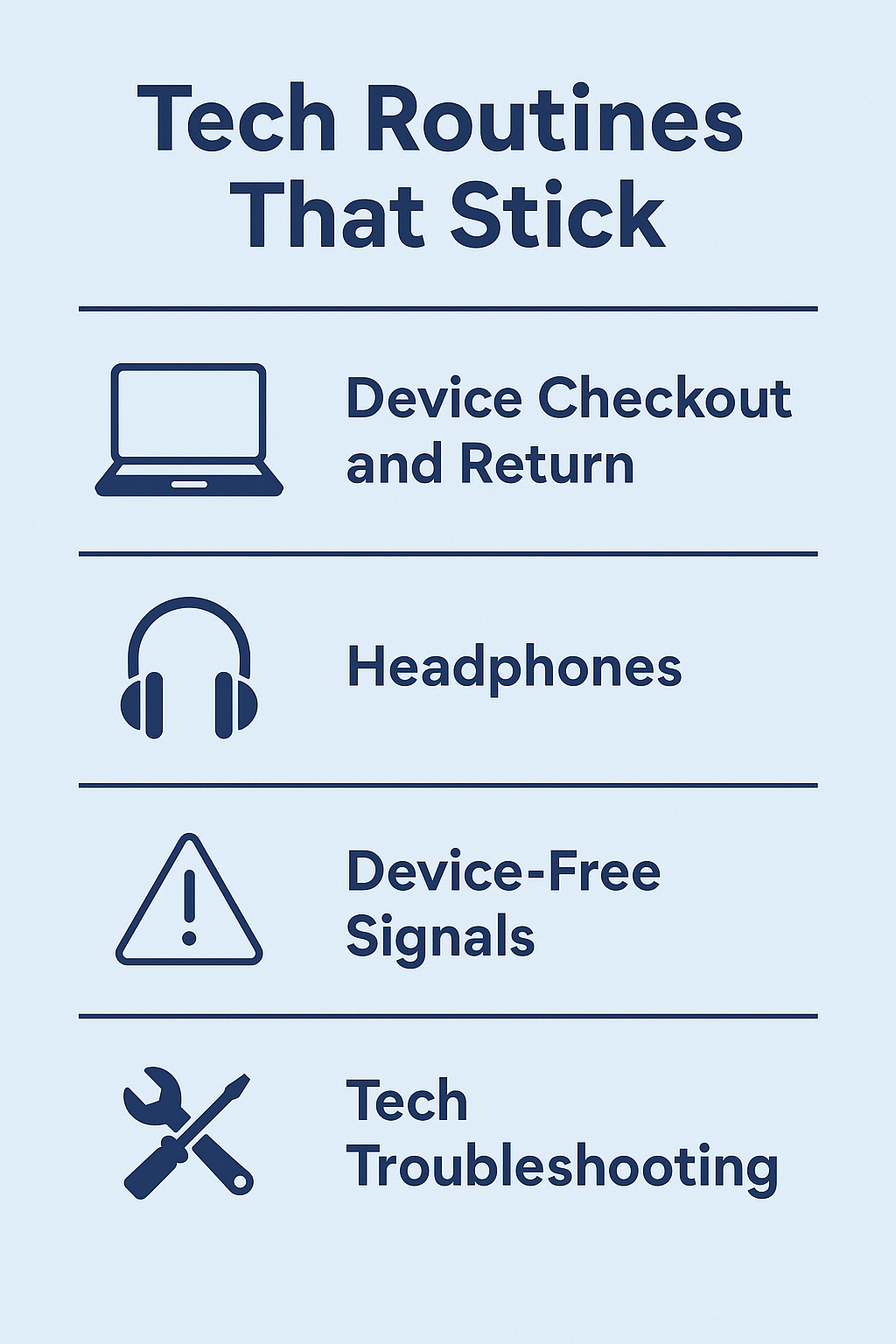
Once students understand the difference—and you’ve decided what matters most—start by locking in one of the most important routines: how class begins. The first five minutes of class are golden. A tech-friendly entry routine sets the tone.
Here’s one that worked works well:
1. Grab device from assigned cart spot (always numbered, always the same).
2. Open a Google Form warm-up already posted in our LMS.
3. Begin silently while I greet students at the door and check log-ins.
Because we practiced the steps starting Day 1, it quickly became automatic. I didn’t have to raise my voice. Students were engaged before the bell even rang.
Teach, Practice, Revisit
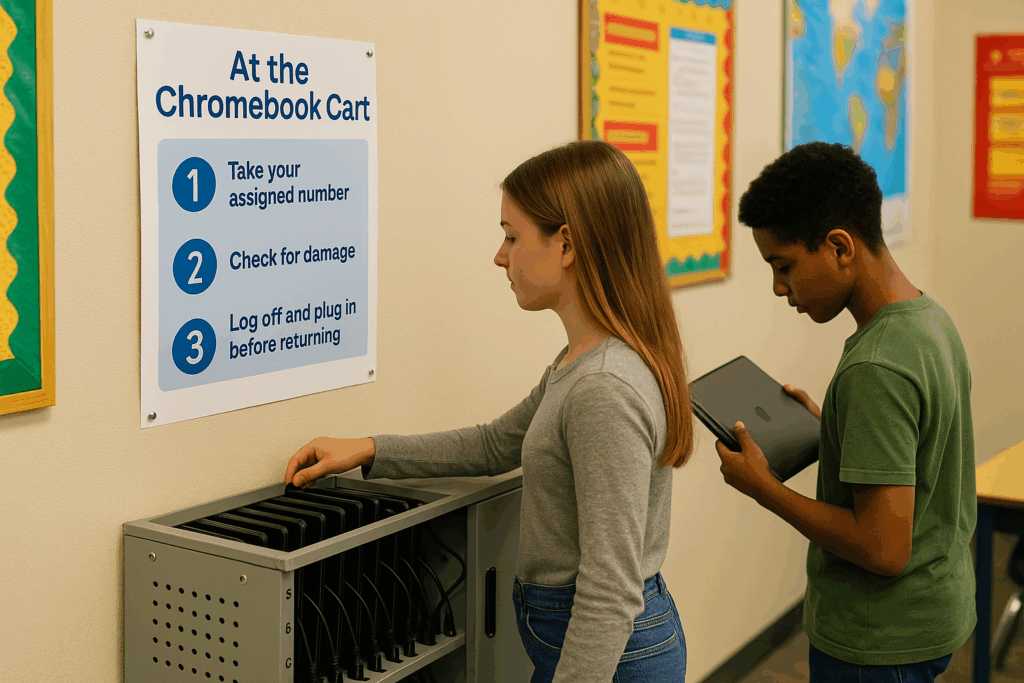
Establishing routines takes more than one explanation. You need to:
- Model what the procedure looks like (use a student volunteer).
- Practice it together (whole class).
- Review and reset regularly—especially after weekends or breaks.
Example: When introducing how to submit digital assignments, walk through it on the projector. Then have students do it immediately. Finally, ask a few to “teach back” the steps.
Try this: After modeling, assign a “tech coach” for the day who helps classmates follow the procedure.
Repetition builds confidence. Confidence builds independence.
Plan for Common Tech Transitions
Technology can either streamline or derail instruction, depending on the routines in place. Here are a few to think about:
- Device Checkout and Return: Labeled carts, numbered devices, checklists. Assign tech monitors if needed.
- Headphones: Keep extras. Build in a “Check Your Volume” routine before video use.
- Device-Free Signals: Use a visible signal (like a small cone on your desk) or verbal cue (“Screens down, eyes up”).
- Tech Troubleshooting: Teach a simple 3-step “Try This First” routine (e.g., refresh, restart, ask a peer).
[Insert infographic titled “Tech Routines That Stick”]
Reinforce with Visuals and Prompts
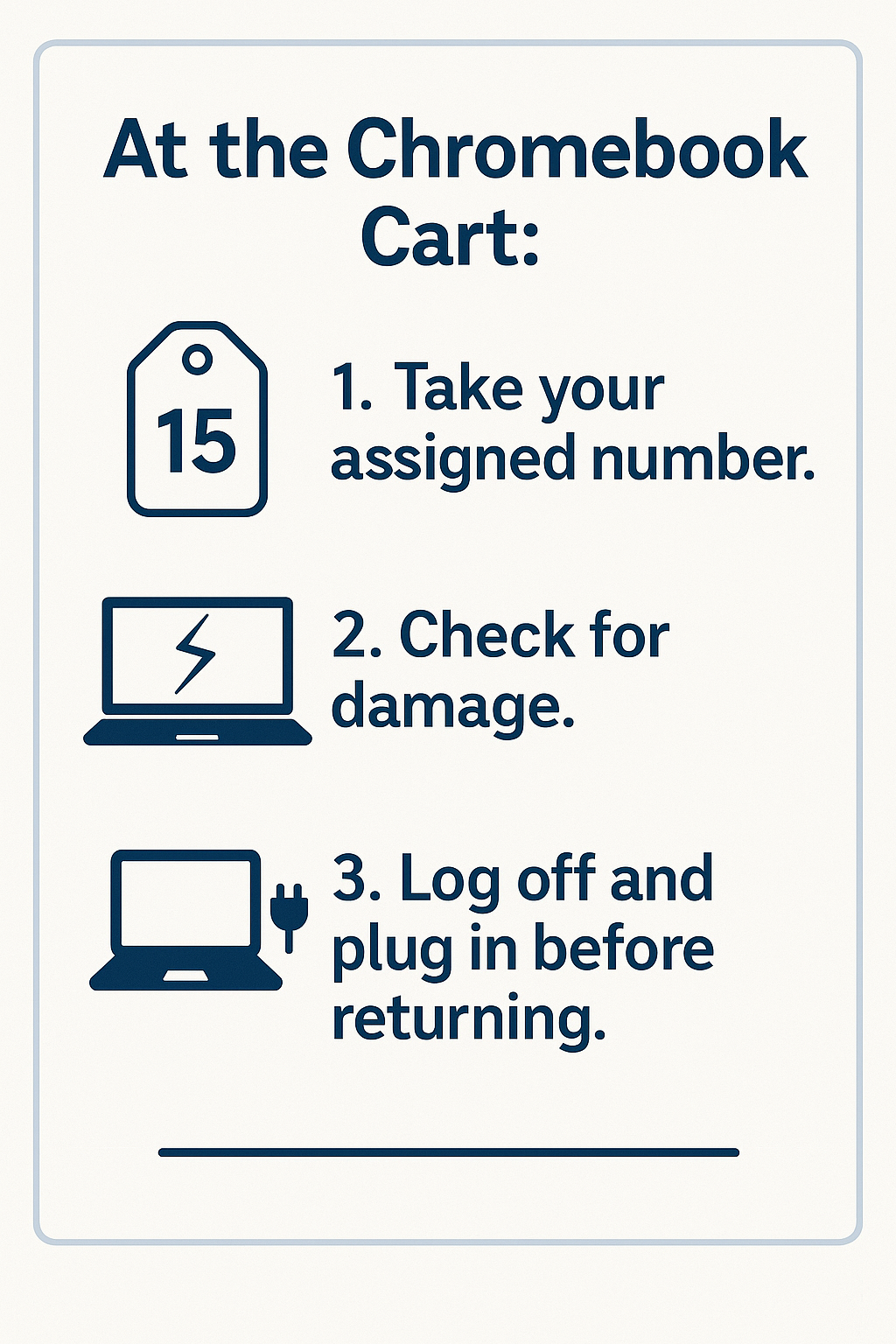
Anchor charts, projected slides, or taped checklists at each device station help remind students what the procedure is. For example:
At the Chromebook Cart:
- Take your assigned number.
- Check for damage.
- Log off and plug in before returning.
Visuals help—especially for your students who struggle with executive functioning or get overwhelmed by verbal directions.
Don’t Let Exceptions Undermine the Norms
We all have days when we skip the warm-up or let students grab any available device. But if those moments become frequent, routines erode.
Instead:
- Signal when something is a “special procedure” (e.g., “Today only, we’re skipping the form and starting with a Kahoot”).
- Return to routines the very next class.
Students need to know the default is dependable.
Final Thoughts: It’s Not About Control, It’s About Clarity
Classroom management isn’t about being strict. It’s about being clear.
Routines free up energy for learning because students aren’t spending it trying to guess the rules. When we teach procedures well, routines follow. And when we revisit them often, our middle schoolers thrive—even on the days they roll their eyes.
Here are three additional resources for you to check out for more information about the value of routines based on well thought out procedures:
- The power of Routines in the Classroom
- Classroom Routines poster
- Introduction and Integration of Classroom Routines by Expert Teachers
Your Turn—What Will You Try Next?
Want to build stronger routines this school year? Share your classroom wins or challenges in the comments—or tag us on social media with your best tech-integrated procedures!

